-
What We Do
- WHERE WE WORK
-
About Us
 Welcome Message from Carol Jenkins
Welcome Message from Carol JenkinsFor more than 90 years, World Learning has equipped individuals and institutions to address the world’s most pressing problems. We believe that, working together with our partners, we can change this world for the better.
On my travels, I’ve had the opportunity to meet with many of those who have joined us in this mission. In Baghdad, we’ve trained more than 2,300 Iraqi youth who are already giving back at home. In London, our partners in the TAAP Initiative strongly believe that we are all responsible to practice inclusion. And in Vermont, our Experiment in International Living and School for International Training participants prove every day that they have the tools and the determination to change the world.
Please join us in our pursuit of a more peaceful and just world.
- Get Involved
Media Center > Story
10 Ways International Exchanges Cultivate Global Citizenship on College Campuses
June 11, 2019
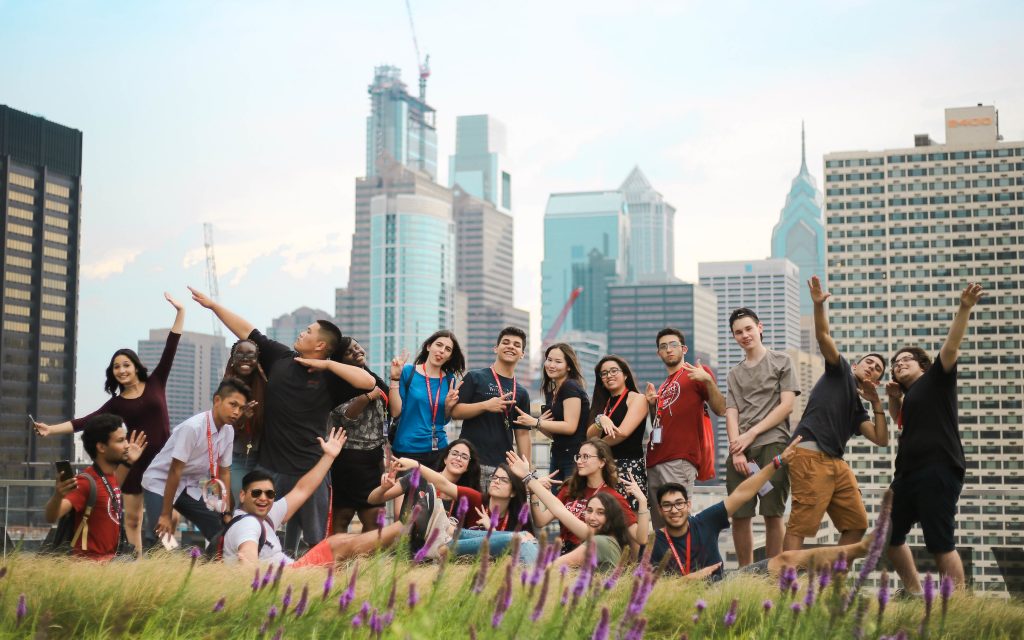
Educators know better than anyone the value of global citizenship in an increasingly interconnected world. That’s why higher education institutions across the United States — in partnership with World Learning — are making it a priority to develop their students’ global competence.
“You need to be a global citizen to be an informed professional,” says Janelle Rasmussen, director of international training and professional development at Montana State University.
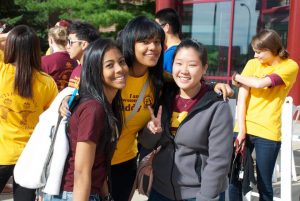
Many careers now require people to work internationally, she explains — and research indicates, too, that businesses need employees with intercultural skills to compete on a global scale. “It’s really important for our students to gain that intercultural competence so that they can succeed when they leave Montana,” she says.
Global citizenship also has returns beyond the working world. At Bennett College, a historically black college for women in North Carolina, “the internationalization of our campus is essential,” says Kelly Mallari, director of the college’s Center for Global Studies. “Students need to know that their voice is important, their vote is important, and that if they don’t understand what’s going on then they’ll never have an accurate picture of what needs to happen in their country.”
But it can be a challenge for higher education institutions to achieve their goals of cultivating global citizens. Typically, institutions do so by expanding curriculum to include international perspectives, ensuring faculty develop their own global competence, hosting international students on campus, and sending U.S. students to study abroad. According to the latest Open Doors survey, though, international student enrollment has declined for the second straight year — particularly among institutions that aren’t well known overseas or based in major U.S. cities. Meanwhile, many schools simply don’t have the funding or capacity to provide study abroad programs for U.S. students.
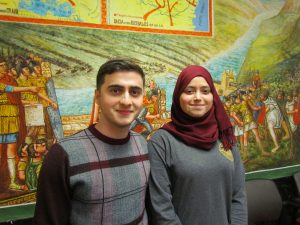
World Learning is committed to helping U.S. colleges and universities address those challenges. As implementer of the Capacity Building Program for U.S. Study Abroad, funded by the U.S. Department of State, we help institutions create, expand, or diversify their study abroad programs. Our sister organization, School for International Training, provides study abroad programs on all seven continents for undergraduates from more than 200 colleges and universities.
Academic exchanges are also critical to helping institutions infuse their campuses with an international outlook. “When you bring international perspectives to a campus, you broaden students’ horizons so that they can start to break down stereotypes and understand that their world bubble is malleable — they can push and change it in different ways,” says Amy Fisher Bruey, project director and university relations manager at World Learning.
As implementer of these academic exchange programs, World Learning recruits a diverse set of international students, prepares them to be cultural ambassadors, and places them in schools across the country to share their cultures and learn about U.S. culture. We aim to make it easy for U.S. colleges to participate, taking care of immigration processing, stipends, and more.
We know that these exchanges can transform a campus and its community. But don’t just take it from us. Here, some of our university partners share their thoughts on the importance of academic exchange.
1. Making International Enrollment Possible
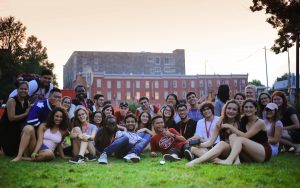
For schools that aren’t internationally known brands like Harvard or Stanford, it can be tough to attract full-time international students. Bennett College, for one, has seen sparse international enrollment in recent years, with none in 2014 and just one student the following year. When Mallari joined as director of its Center for Global Studies two years ago, she made increasing the presence of international students on campus a key goal of her department.
Mallari says partnering with World Learning as a host for students in the Global Undergraduate Exchange Program (Global UGRAD) — sponsored by the U.S. Department of State with funding provided by the U.S. government and administered by World Learning — helped make it possible to achieve that goal. Participating in the program ensures that Bennett will have international students from all over the world on its campus each year. Now, instead of one international student (or none at all), Bennett College will host four this year.
“There’s been a drastic increase in international student count on our campus,” Mallari says. “The students we get through Global UGRAD are not only here to learn but they’re also prepped amazingly and ready to participate on campus and share their culture and life with us, which is something I could never thank them enough for. So being able to rely on that from Global UGRAD has been tremendous.”
2. Creating Cultural Ambassadors
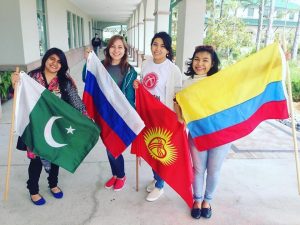
Global citizenship begins with an exposure to new ideas, people, and cultures. U.S. government-sponsored academic exchange programs — such as Global UGRAD — are intentional about creating cultural ambassadors. After being selected through a competitive process based on academic excellence and leadership potential, Global UGRAD students take a virtual skills development course to prepare them for their stay in the U.S.
Lisa Kyle, international exchange coordinator at Wayne State University in Michigan, says that this kind of preparation makes a difference. She recently took a terrestrial ecology class alongside a Global UGRAD participant from Israel. She noticed he spent a good deal of time talking to classmates about where he was from and answering questions about his culture. “It was an eye-opening experience,” she says.
3. Providing New Perspectives on Global Issues
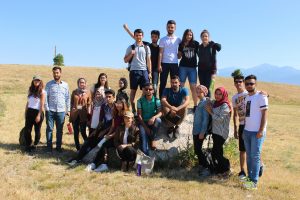
It’s been nearly a decade since the University of Southern Indiana last hosted Iraqi students on its campus as part of the Iraqi Young Leaders Exchange Program for Undergraduate Students, which is sponsored by the U.S. Department of State and the U.S. Embassy Baghdad. But for Heidi Gregori-Gahan, associate provost for international programs, the memories of that experience remain strong. “I’ve been in this field for over 35 years now and I can count on one hand the experiences that I’ve been involved with that truly have changed people’s perspectives in profound ways,” she says.
Gregori-Gahan says that having young Iraqi students on campus for a month, sharing their cultures and experiences, helped students and staff alike put a human face on a country that they had previously only associated with war. “If the vast majority of our American students can interact with our international students on campus and understand a little bit more of their experiences and their realities, then the next time they hear something about that country in the news, it has so much more meaning for them,” she says. “I think it just makes the world seem so much smaller when you see that.”
4. Enriching the Academic Curriculum
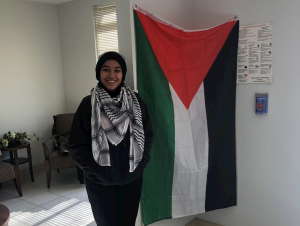
Beyond the many informal ways academic exchanges transform the learning experience, they can also drive more formal changes. Last year, a Global UGRAD scholar named Serena inspired the development of an entirely new course at Bennett College.
As the first student that Bennett hosted from the Palestinian Territories, Serena was frequently invited to speak at campus events to provide context to events in the news. “Her conversation really struck a chord with a lot of the people who deal in the disciplines of politics, socioeconomics, and religious studies at our college,” Mallari says.
As a result, the university began developing a course that it hopes to add to the curriculum in spring 2020, examining the issues between Gaza, the West Bank, and Israel. “International students provide an amazing perspective on their country, their culture, their faith if they belong to a different faith group than ours,” Mallari says. “What they bring to the campus, you can’t buy those kinds of things.”
5. Inspiring U.S. Students to Pursue Opportunities Abroad
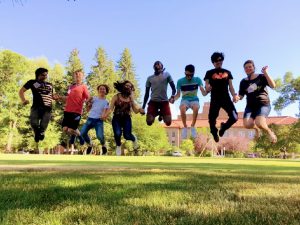
Living abroad is one of the most effective ways to develop intercultural competencies. It can also be one of the most intimidating. Wayne State University has a sizable international population, but most of its undergraduates hail from within 100 miles of Detroit. Though they might have family ties abroad, they often don’t have much experience with other cultures. But Kyle says hosting international exchange students makes a difference.
“We have students that had never really done anything international in their lives and then they get this Global UGRAD student who is their roommate,” Kyle explains. “And all of a sudden, they become fast friends and then the next thing I know, the next fall, the U.S. student comes into my office and says, ‘I met so-and-so when she was here on her Global UGRAD Program. I want to go to her country. Is there an exchange?’”
Rasmussen has had the same experience at Montana State University. “[International exchanges are] a chance for us to kind of bring the world to Montana for some of the Montana students who would never get a chance or even think about studying abroad,” she says. “Bringing the students here creates an opportunity for them to engage and see a new perspective without even having to leave Montana.”
In fact, Rasmussen has seen many of the undergraduate students her division has hired as program assistants fall in love with the cultures they’re exposed to and go on to work in the region. “It’s changed their entire career path,” she says.
6. Exposing Faculty to Different Ways of Learning and Thinking
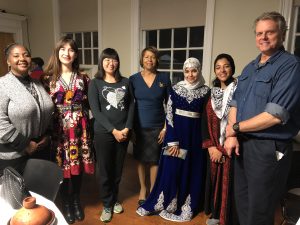
It’s not just students who derive inspiration from international visitors. Kyle says programs like Global UGRAD have created learning experiences for faculty as well, opening up their minds to different ways of learning and teaching across the world. One professor, for example, learned how to better relate to a student from China who rarely participated in his class when Kyle explained to the professor that cultural norms in the region where the student was from discourage that kind of classroom interaction.
Like the students who have had international roommates, Kyle says professors who teach international students end up calling her to ask if there are any faculty exchanges available to help them develop their own careers. “It broadens their horizon,” she says.
World Learning also helps make those faculty exchanges possible as implementer of the Fulbright Specialist Program. Sponsored by the U.S. Department of State, Bureau of Educational and Cultural Affairs, the Fulbright Specialist Program enables U.S. professionals and scholars to work on short-term projects overseas designed by local host institutions.
These exchanges make a difference for university faculty. For example, Dr. Quan Le, Associate Professor of Economics and Director of the International Business Program at Seattle University, says his experience in Vietnam had ripple effects when he returned to campus. “What I learned as a Fulbright Specialist I was able to bring back to my current job in the U.S. and help my students in Seattle get real-world entrepreneurial experience through my contacts at Dalat University.”
7. Making International Experiences More Accessible
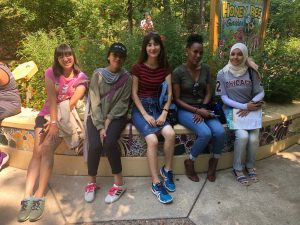
For many, though, opportunities to study or work abroad seem out of reach. “I have students who don’t even know what a passport is,” says Mallari at Bennett College. She explains that many of those U.S. undergraduate students are coming from public high schools that were underfunded and lacked resources that might have otherwise exposed them to the world.
“Being able to provide them with a global experience on campus through the interaction and engagement of international students and faculty is essential for them because this might be the only chance that they get to engage or to speak or to listen to someone of a different race and a different culture,” Mallari says.
At the University of Southern Indiana, Gregori-Gahan says that programs like Global UGRAD also open new possibilities for U.S. students who thought they would never have the resources to travel abroad. Unlike most international students, she notes that many Global UGRAD students come from countries and communities that are not especially wealthy and are studying in the U.S. on merit-based scholarships. “I think it helps [U.S. students] see that it is possible,” she says.
8. Diversifying Intercultural Experiences
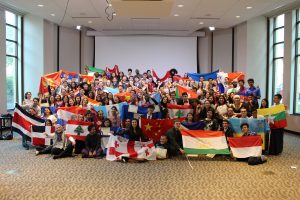
International exchange programs also diversify campuses across the U.S in less obvious ways. International enrollment at many U.S. schools is often skewed heavily to wealthier students from countries such as China and Saudi Arabia. But exchange programs like the Iraqi Young Leaders Exchange Program and Global UGRAD bring in a wider diversity of students.
“For us to be able to bring in people from Kazakhstan and Honduras and Guatemala, that really helps, even though it’s just one or two people from those countries,” says Gregori-Gahan at the University of Southern Indiana.
Rasmussen agrees. Montana State University hosts exchanges with students from North Africa and the Middle East — including Tunisia, Morocco, Libya, and more — which she notes are a particularly great learning experience for students. “We have really rich discussions about how their countries view democracy and how they’re navigating what’s going on in their countries,” she says.
9. Reaching the Next Generation of Global Citizens
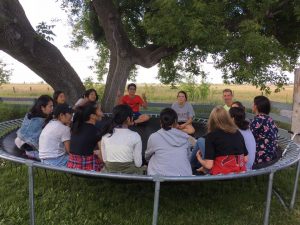
Colleges and universities also have the opportunity to foster global citizenship beyond their own campuses through international exchange programs. As a host of the EducationUSA Academy — a pre-college academic enrichment program for international high school students sponsored by the U.S. Department of State — Montana State University promotes intercultural understanding among high schoolers in the local Bozeman community.
As part of the program, the university pairs its visiting students with those from local high schools for activities and also hires local students to serve as global ambassadors. “Starting our Montana kids at an early age to be interested in the possibility of study abroad has been really exciting for us and our local high school educators, too,” Rasmussen says. “It’s a valuable experience to have when you’re young because it’ll stick will you as you move forward in your student life and career.”
10. Strengthening Community Bonds
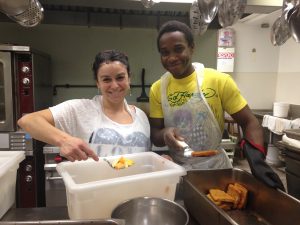
Local communities benefit from international exchanges in other ways, too. All of the academic exchange programs that World Learning implements encourage participants to develop friendships with local community members whether they stay with host families or volunteer with local organizations.
At the University of Southern Indiana, Gregori-Gahan says the Evansville community loves it when international students volunteer with local nonprofit organizations. As one inner-city after-school community development program staff member told her, these volunteer opportunities also give many community members their first opportunity to meet someone from another country.
And those friendships endure. Gregori-Gahan says that nearly 10 years after hosting the Iraqi Young Leaders Exchange Program, local host families and participants are still in touch. “People just fell in love with our students,” she says. The same is true at current host Wayne State University, where Fareed Shalhout, associate director of international programs, says the U.S. and Iraqi students remain close. “It’s not a program that comes and goes,” he says. “It’s really a lifetime of friendship.”
Learn more about these programs:





